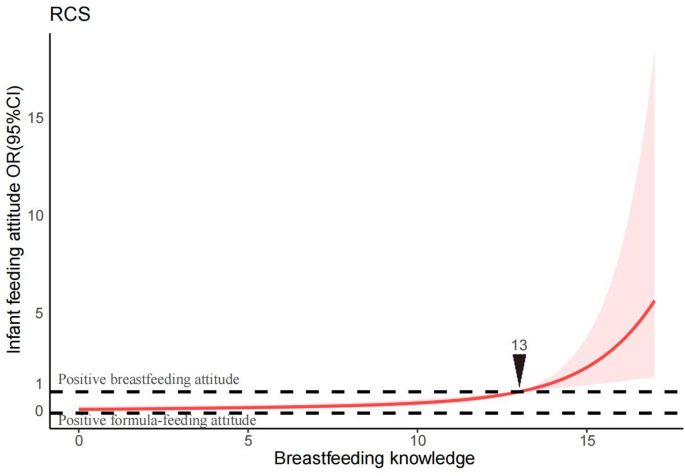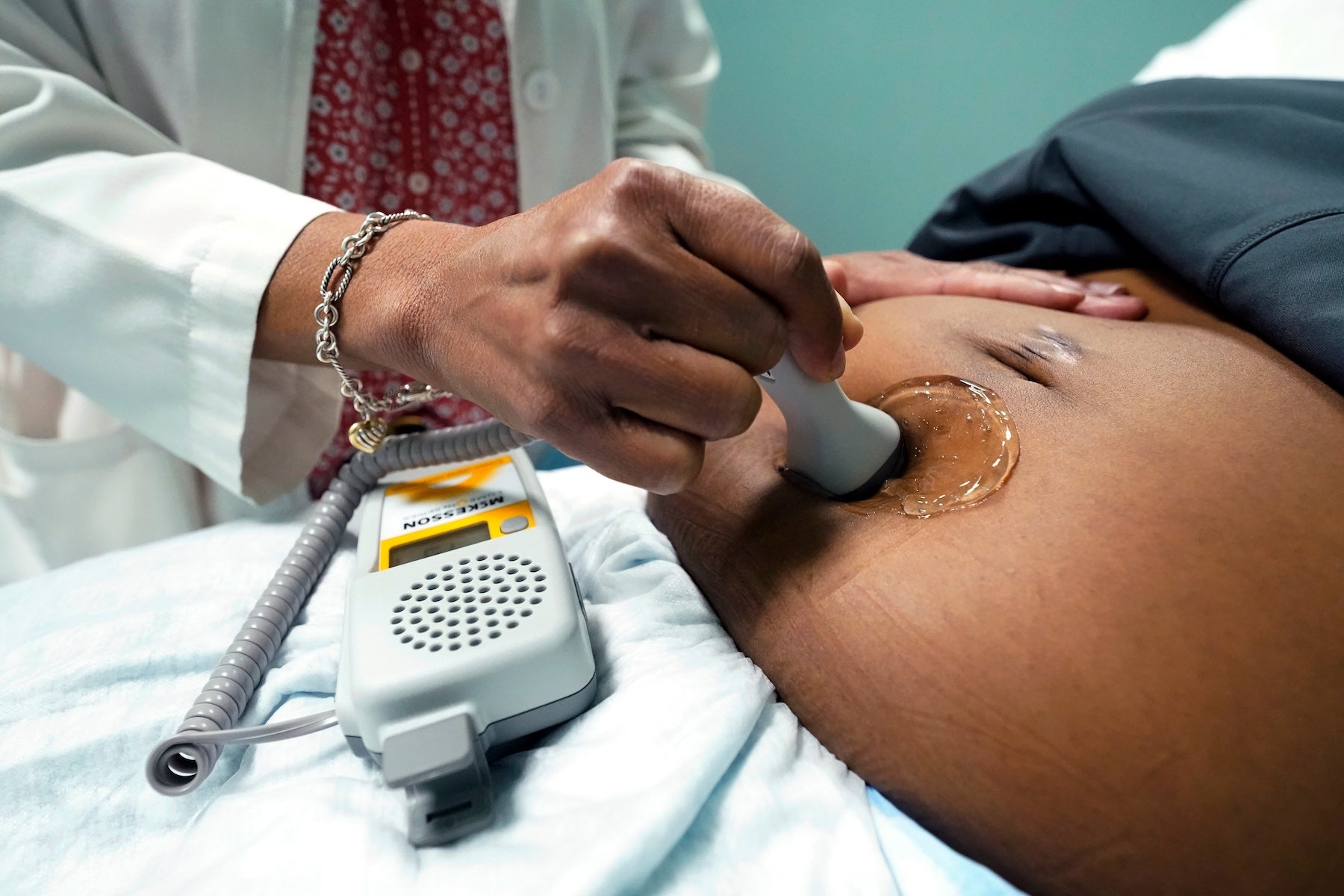Breastfeeding knowledge and body image affect breastfeeding attitude of pregnant women: a cross-sectional study

Yu, M. et al. Effectiveness of an optional breastfeeding course for multidisciplinary undergraduate healthcare students: A quasi-experimental study. Nurse Educ. Pract. 69 (103609). (2023).
Victora, C. G. et al. Association between breastfeeding and intelligence, educational attainment, and income at 30 years of age: a prospective birth cohort study from Brazil. Lancet Glob Health. 3 (4), e199–205. (2015).
Google Scholar
Victora, C. G. et al. Breastfeeding in the 21st century: epidemiology, mechanisms, and lifelong effect. Lancet 387 (10017), 475–490. (2016).
Google Scholar
Guo, T. L. L. & Lv, Z. Effects of different feeding on the occurrence, development, and regression of necrotizing Enterocolitis in neonates. Chin. J. Pediatr. Surg. 42 (10), 944–949 (2021).
Durmuş, B. et al. Breast-feeding and growth in children until the age of 3 years: the generation R study. Br. J. Nutr. 105 (11), 1704–1711. (2011).
Google Scholar
Basree, M. M. et al. Abrupt Involution induces inflammation, estrogenic signaling, and hyperplasia linking lack of breastfeeding with increased risk of breast cancer. Breast Cancer Res. 21 (1), 80. (2019).
Google Scholar
Babic, A. et al. Association between breastfeeding and ovarian cancer risk. JAMA Oncol. 6 (6), e200421. (2020).
Google Scholar
McGuire, S. & World Health Organization. Comprehensive Implementation Plan on Maternal, Infant, and Young Child Nutrition. Geneva, Switzerland, Adv Nutr 2015;6(1):134-5, (2014). https://doi.org/10.3945/an.114.007781
UNICEF. Too few children benefit from recommended breastfeeding practices. (2024). Available from: [Last Accessed; 7 December].
Commission, N. H. The Action Plan for Promoting Breastfeeding (2021–2025): China, China; 2024. (2021). Available from: [Last Accessed; 15 November].
Organization, W. H. & Breastfeeding (2024). Available from: [Last Accessed; 26 November].
Organization, W. H. Exclusive breastfeeding: celebrating successes and accelerating progress by 2030. (2024). Available from: [Last Accessed; 20 November].
Wang, Y. & Zhou, C. China should take more measures to Raise its breastfeeding rate. Biosci. Trends. 13 (4), 358–360. (2019).
Google Scholar
Li, J. Y. et al. The relationship of previous breastfeeding experiences and factors affecting breastfeeding rates: A Follow-Up study. Breastfeed. Med. 15 (12), 789–797. (2020).
Google Scholar
Yu, J. et al. Maternal infant-Feeding Attitudes, infant eating Behaviors, and maternal feeding choice at 3 and 6 months postpartum: A comparative multicenter international study. Breastfeed. Med. 15 (8), 528–534. (2020).
Google Scholar
Cox, K. N., Giglia, R. C. & Binns, C. W. The influence of infant feeding attitudes on breastfeeding duration: evidence from a cohort study in rural Western Australia. Int. Breastfeed. J. 10 (25). (2015).
Zhang, Z. et al. What factors influence exclusive breastfeeding based on the theory of planned behaviour. Midwifery 62, 177–182. (2018).
Google Scholar
Guo, J. L. et al. Efficacy of the theory of planned behavior in predicting breastfeeding: Meta-analysis and structural equation modeling. Appl. Nurs. Res. 29, 37–42. (2016).
Google Scholar
Ho, Y. J. & McGrath, J. M. A Chinese version of Iowa infant feeding attitude scale: reliability and validity assessment. Int. J. Nurs. Stud. 48 (4), 475–478. (2011).
Google Scholar
Li, J. Y. et al. Experience predicts the duration of exclusive breastfeeding: the serial mediating roles of attitude and self-efficacy. Birth 48 (3), 397–405. (2021).
Google Scholar
Suppiger, D., Natalucci, G. & Reinelt, T. Reliability and validity of the German version of the Iowa infant feeding attitude scale (IIFAS-G) and relations to breastfeeding duration and feeding method. Int. Breastfeed. J. 19 (1), 58. (2024).
Google Scholar
Scott, A. L. et al. University campus breastfeeding, knowledge, and perceptions of support: an exploratory study. PLoS One. 18 (5), e0285008. (2023).
Google Scholar
Scott, J. A. et al. Psychosocial factors associated with the abandonment of breastfeeding prior to hospital discharge. J. Hum. Lact. 17 (1), 24–30. (2001).
Google Scholar
Holbrook, K. E. et al. Maternal sociodemographic characteristics and the use of the Iowa infant attitude feeding scale to describe breastfeeding initiation and duration in a population of urban, Latina mothers: a prospective cohort study. Int. Breastfeed. J. 8 (1), 7. (2013).
Google Scholar
Mohd Shukri, N. H., Wells, J. & Fewtrell, M. Differences in maternal characteristics and their associations with breastfeeding attitudes among primiparous mothers. Midwifery 95 (102931). (2021).
Chen, Y. et al. Factors associated with exclusive breastfeeding during postpartum in Lanzhou city, china: a cross-sectional study. Front. Public. Health. 11 (1089764). (2023).
Dukuzumuremyi, J. P. C. et al. Knowledge, attitude, and practice of exclusive breastfeeding among mothers in East africa: a systematic review. Int. Breastfeed. J. 15 (1), 70. (2020).
Google Scholar
Wang, Y., You, H. X. & Luo, B. R. Exploring the breastfeeding knowledge level and its influencing factors of pregnant women with gestational diabetes mellitus. BMC Pregnancy Childbirth. 20 (1), 723. (2020).
Google Scholar
Kehinde, J., O’Donnell, C. & Grealish, A. The effectiveness of prenatal breastfeeding education on breastfeeding uptake postpartum: A systematic review. Midwifery 118 (103579). (2023).
Owen, A. et al. The body image experiences of breastfeeding mothers in the UK: A qualitative exploration. J. Health Psychol. 29 (4), 275–288. (2024).
Google Scholar
Acheampong, A. K. & Abukari, A. S. Nurses’ and midwives’ perspectives on how the pursuit for the ‘perfect’ body image affects their own breastfeeding practices: a qualitative study in Ghana. Int. Breastfeed. J. 16 (1), 74. (2021).
Google Scholar
Linde, K. et al. The trajectory of body image dissatisfaction during pregnancy and postpartum and its relationship to Body-Mass-Index. PLoS One. 19 (8), e0309396. (2024).
Google Scholar
Brown, A., Rance, J. & Warren, L. Body image concerns during pregnancy are associated with a shorter breast feeding duration. Midwifery 31 (1), 80–89. (2015).
Google Scholar
Wu, Y. et al. Predictors of body image dissatisfaction among women at different stages of pregnancy:a cross-sectional study. Midwifery 129 (103903). (2024).
Manjunath, C. et al. Association of body image dissatisfaction, behavioral responses for healthy eating, and cardiovascular health in African-American women with overweight or obesity: A preliminary study. Am. J. Prev. Cardiol. 8 (100254). (2021).
Cheng, Y. Study of Influencing Factors on Attitude of Infant Feeding of Pregnant Women (Tianjin Medical University: Tianjin;, 2018).
Dai, H. X. et al. Psychometric properties of a Mainland Chinese version of the Iowa infant feeding attitude scale among postpartum women in China. Contemp. Nurse. 44 (1), 11–20. (2013).
Google Scholar
Dai, H-L. The influencing factors of infant feeding attitude among hospitalized postpartum women in Macao. Chin. Nurs. Manage. 13 (1), 5 (2013).
Li, L. Y., Gu, Y., Chen, C., Jiang, L. & Wang, L. The current status and influencing factors of infant feeding attitude among hospitalized post-partum women in Shanghai. Nurs. J. Chin. People’s Liberation Army. 33 (9), 6 (2016).
Abdulahi, M. et al. Adaptation and validation of the Iowa infant feeding attitude scale and the breastfeeding knowledge questionnaire for use in an Ethiopian setting. Int. Breastfeed. J. 15 (1), 24. (2020).
Google Scholar
Cole, J. et al. Attitudes and barriers to breastfeeding among women at high-risk for not breastfeeding: a prospective observational study. BMC Pregnancy Childbirth. 24 (1), 81. (2024).
Google Scholar
Gurka, K. K. et al. Exploring intended infant feeding decisions among low-income women. Breastfeed. Med. 9 (8), 377–384. (2014).
Google Scholar
Claudia Lopes, A. & Lousada, M. Breastfeeding knowledge, attitudes, beliefs and practices of refugee, migrant and asylum seeker women in Portugal. BMC Public. Health. 24 (1), 394. (2024).
Google Scholar
Liu, L. et al. Levels and determinants of antenatal breastfeeding attitudes among pregnant women: A Cross-Sectional study. Child. (Basel). 10 (2). (2023).
Pereira, H. et al. Newborn feeding knowledge and attitudes among medical students. Eur. J. Investig Health Psychol. Educ. 13 (3), 556–567. (2023).
Google Scholar
Awaliyah, S. N., Rachmawati, I. N. & Rahmah, H. Breastfeeding self-efficacy as a dominant factor affecting maternal breastfeeding satisfaction. BMC Nurs. 18 (Suppl 1), 30. (2019).
Google Scholar
Piro, S. S. & Ahmed, H. M. Impacts of antenatal nursing interventions on mothers’ breastfeeding self-efficacy: an experimental study. BMC Pregnancy Childbirth. 20 (1), 19. (2020).
Google Scholar
Abbass-Dick, J. et al. Development, psychometric assessment, and predictive validity of the comprehensive breastfeeding knowledge scale. Midwifery 83 (102642). (2020).
Huang, C. et al. Breastfeeding education in Chinese hospitals: A cross-sectional study. Int. J. Nurs. Stud. 133 (104310). (2022).
Gillen, M. M. et al. Breastfeeding, body image, and weight control behavior among postpartum women. Body Image. 38, 201–209. (2021).
Google Scholar
Harrison, M. E. et al. Embodied motherhood: exploring body image in pregnant and parenting youth. J. Pediatr. Adolesc. Gynecol. 32 (1), 44–50. (2019).
Google Scholar
Singh Solorzano, C. et al. Body image dissatisfaction and interoceptive sensibility significantly predict postpartum depressive symptoms. J. Affect. Disord. 311, 239–246. (2022).
Google Scholar
Papini, N. M. et al. Self-compassion and body image in pregnancy and postpartum: A randomized pilot trial of a brief self-compassion meditation intervention. Body Image. 43, 264–274. (2022).
Google Scholar
Zhang, Y. A Study on the Current Situation and Influencing Factors of Pregnant Women’s Body Image (Peking Union Medical College: Beijing, China;, 2023).
Hodgkinson, E. L., Smith, D. M. & Wittkowski, A. Women’s experiences of their pregnancy and postpartum body image: a systematic review and meta-synthesis. BMC Pregnancy Childbirth. 14 (330). (2014).
von Elm, E. et al. The strengthening the reporting of observational studies in epidemiology (STROBE) statement: guidelines for reporting observational studies. Lancet 370 (9596), 1453–1457. (2007).
Google Scholar
von Elm, E. et al. The strengthening the reporting of observational studies in epidemiology (STROBE) statement: guidelines for reporting observational studies. J. Clin. Epidemiol. 61 (4), 344–349. (2008).
Google Scholar
Nanishi, K. & Jimba, M. Reliability and validity of the Japanese version of the Iowa infant feeding attitude scale: A longitudinal study. J. Hum. Lact. 30 (3), 346–352. (2014).
Google Scholar
Tomás-Almarcha, R., Oliver-Roig, A. & Richart-Martinez, M. Reliability and validity of the reduced Spanish version of the Iowa infant feeding attitude scale. J. Obstet. Gynecol. Neonatal Nurs. 45 (5), e26–40. (2016).
Google Scholar
Lau, Y. et al. Psychometric properties of the Iowa infant feeding attitude scale among a multiethnic population during pregnancy. J. Hum. Lact. 32 (2), 315–323. (2016).
Google Scholar
Twells, L. K. et al. Assessing infant feeding attitudes of expectant women in a provincial population in canada: validation of the Iowa infant feeding attitude scale. J. Hum. Lact. 32 (3), Np9–np18. (2016).
Google Scholar
Zhao, M. Factors Associated with Breastfeeding Self-Efficacy among Beijing New Mothers (Beijing Union Medical College: Beijing;, 2008).
Zeng, J. et al. Father support breastfeeding self-efficacy positively affects exclusive breastfeeding at 6 weeks postpartum and its influencing factors in Southeast china: a multi-centre, cross-sectional study. BMC Public. Health. 24 (1), 2698. (2024).
Google Scholar
Watson, B. et al. Development and validation of a tailored measure of body image for pregnant women. Psychol. Assess. 29 (11), 1363–1375. (2017).
Google Scholar
Sun, W. Study on reliability, Validity of the Chinese Version of Body Image in Pregnancy Scale (Jilin University: Jilin;, 2019).
link








